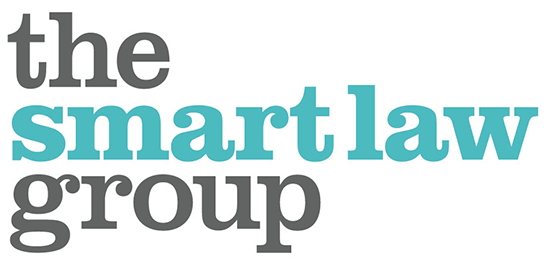People have told us that the hardest part of their entire divorce process was making that FIRST call to a divorce lawyer in Michigan.
That’s understandable because it’s SUCH a big first step.
But that first call is the beginning of clarity. The first part of the solution. The action item that will move you from where you are now and what you want your new life to look like.
What is that first call to a divorce lawyer like?
In order to put your mind at ease and make it a least a little more comfortable for you to make that call to us, here’s a real example of what a first call to The Smart Law Group is like:
[TYPICAL FIRST CALL – transcribed and edited from a real call (no personal details were included, and a few were changed)].
Caller:
I’m looking for a divorce lawyer and I live here in Michigan. I’m at the absolute beginning stages, so I’m just kind of getting my feet wet, seeing what’s required, what I might need to do next, that kind of thing, and poking around, if you will.
It’s not something I want to be doing, but we have many issues, and I am thinking about getting out before it gets too bad. I need some changes, but I don’t know if it is going to happen.
If things don’t change, I am going to need your help.
Garry Greenberg:
Thank you for sharing that information.
Giving Basic Information
Garry Greenberg:
We definitely can help you and protect you if you need to file for divorce. I’d like to ask you some questions first if that’s okay.
How long have you been married?
Caller:
About 19 years.
Garry Greenberg:
Do you have any children?
Caller:
I have two kids. My son is 15 and my daughter is 12.
Garry Greenberg:
Are you both working, or is only one of you working?
Caller:
Both of us are working.
Garry Greenberg:
Do you own your home?
Caller:
Yes.
Garry Greenberg:
What city do you live in?
Garry Greenberg:
Thank you for that information. It provides me with some context for our conversation.
Asking Specific Questions
Garry Greenberg:
Almost everyone has some specific questions that they want to ask. Do you have any questions that you want to ask before we talk about the process?
I know you are at the beginning of the process so we can start anywhere you want.
Caller:
My biggest question I guess is what the process looks like and what is this going to cost?
What can I expect if I file for divorce?
Garry Greenberg Lays out the Process:
Those are fair questions, and they definitely need to be answered for you to understand how to move forward.
The broad answer to your question is that the process always starts with your call, and I know that just making this call is usually the most difficult part in considering a divorce, so that was a big step to understanding your options.
Having been a divorce attorney for nearly 40 years, most of my clients tell me that they waited too long and wasted too much time before beginning this process.
The next step is for us to schedule an appointment where we would talk about your situation in more detail. Once we discuss the details of your situation, we can discuss the best plan for moving forward.
I like to ask my clients what they want to do in their case. This helps us figure out our plan. I don’t expect my clients to necessarily know what they want to do, but it helps us think about the process. At some point, decisions will need to be made.
Another way to think about how to move forward is to ask, “where do you want to be in a year?”
The answer might include where you want to live.
- Do you want to stay in the marital home, move, or sell it?
- Is there going to be any change in your job situation once the divorce is final?
- Do you have any requests regarding the custody and parenting time for your kids?
- Are the kids going to have to change schools?
These are just a few of the questions to consider in planning forward.
What Happens Next?
Once you know where you want to end up, it makes it easier to know the action to take today in order to get there.
I will most likely be able to get all of the necessary information from you during our initial meeting. Sometimes it will require getting some additional information or documentation, but we will know by the end of our meeting what we will need to move forward.
Once we have the necessary information to file for divorce, you will sign the necessary paperwork and then that paperwork will be filed with the Court.
The initial document that starts the divorce is called a Complaint for Divorce.
About the Divorce Process
Most cases don’t go to trial and are settled either before mediation or at mediation. Very few cases actually go to trial because it is time consuming, emotionally draining and expensive to go to trial, not to mention the uncertainty of what a Judge might decide on any case.
There are other forms and documents that will also need to be filed at the same time. Sometimes there are additional documents and/or requests that are filed with the Court at the same time as the Complaint for Divorce depending on the specific details in your case.
The additional documents and/or requests sometime relate to maintaining the status quo and payment of bills, or an asset injunction to make sure that neither spouse tries to sell or hide property. Sometimes special requests are made with regard to the children, but this is something that we will determine at our first appointment.
Once all of the proper paperwork is filed with the Court, that paperwork will be served on your husband. You and I will discuss how we will go about giving him the paperwork.
There are certain rules to be followed, but we will discuss the best way to get this done. I won’t get technical here, but he will basically have 21 or 28 days to respond to the paperwork we have filed with the Court.
Once a response is filed with the Court, and we will get copies of anything filed with the Court, there is financial information that is required to be exchanged 28 days after the response is filed.
Every case is different, and we don’t necessarily know how the other side will respond. It is typical to have some initial conversations about how to resolve the issues in the case. Sometimes more information needs to be obtained before any decisions can be made. This is a process that you and I will be discussing as we move forward with your case.
During this process, we usually will try to be amicable with the other side to try to get an appropriate settlement in the case. In a perfect world, there’s open communication to be able to discuss a resolution so that it moves forward as quickly and as amicably and inexpensively as possible.
If not, a lot of times there are issues where an agreement just cannot be reached. There are times when we will need to take aggressive action to get what we need. You will always know what is going on in your case, so you are not surprised.
When there are children involved, depending on which Court or County the case is in, there may be a Friend of the Court conference or hearing.
Sometimes there is a Friend of the Court investigation regarding the child-related issues. The Friend of the Court usually tries to get the issues resolved to help the Court and the parents avoid a trial.
Settlements and Appeals
The next step in the process is for the Court to schedule a settlement conference or a status conference. Basically, the Judge just wants to know what is going on in the case, what needs to be done, and if the case is not settled by that time, the Judge will issue a Scheduling Order that states the various dates and deadlines, and a final trial date, that will be applicable to your case.
Sometimes, no one needs to appear in Court, but that depends on the Judge and the situation in your case. If the case is settled before that court date, it is possible that this could be the final court date.
If the case is not settled by the time of the settlement conference, most Judges require the case to go to mediation. A neutral mediator is selected by the attorneys and a mediation date is scheduled.
At the mediation, each side presents their case, their facts and their proposal. It is usually an informal process where the mediator works with each side to get everyone to reach an agreement.
The mediator does not decide who might be right or wrong. The mediator’s role is to get everyone to reach an agreement.
Of course, we will do everything we can do to get the agreement that we want, but it is not unusual for each side to compromise in order to settle the case and avoid going to trial, which is the next step if the case is not settled at mediation.
I know that was a lot of information, but that is generally the process.
Caller:
Yes, that is a lot of information, but that is why I am calling you. And what about the cost of the divorce?
Garry Greenberg:
The retainer would be paid at our first meeting, or whenever you want me to begin working on your case. I would have you sign a Retainer Agreement. We take cash, check, or credit cards for payment. Our services are billed on an hourly basis and the initial retainer fee covers the basic amount of time that is spent on any case, along with the initial court fees.
The total cost really depends on what the issues are in your case and how many issues everyone might be able to agree to. Are we having to go to court every couple of weeks? Is he dragging you to court every couple weeks? Do we need to take him to court to get a court Order for something? Sometimes, additional work needs to be done to get all of the information and/or documentation needed to make a proper decision in a case and be able to settle the case.
There can be many unexpected events or actions in a case, but we will be prepared for anything if something unusual happens, including if the other side chooses to be difficult.
Caller:
I understand, and that would not be a problem. So, is there anything else I should know? What is the next step?
Garry Greenberg:
If you have any questions, please let me know. The next step would be to schedule an appointment to meet and begin the process.
Another alternative is to schedule an hour-long consultation. We would be able to have a more detailed discussion about your marriage and the issues to be addressed, including custody and parenting time issues for your children. We would also discuss financial details, such as your home, any mortgage, any debts such as credit cards, any bank accounts and retirement plans – essentially any asset or debt that was accumulated during the marriage. Sometimes child support and spousal support, or alimony, also needs to be discussed.
Caller:
I do have another question. How long does this whole process take?
GARRY GREENBERG:
The absolute minimum for any case in the State of Michigan is 60 days from the date the case is filed. So, even if you have an agreement in your case, you will have to wait 60 days. If you walked in the door with an agreement, it would still typically take 3-4 months until the final paperwork is done.
I should point out that Michigan law does require any divorce with minor children to wait six months before a final Judgment of Divorce can be entered with the Court. However, most Judges will waive that requirement, depending on who our Judge is. Our Judge will be randomly assigned to your case at the time it is filed.
Aside from the six-month statutory waiting period, If everyone approaches the case amicably and shares the necessary information needed to settle a case, it is not unusual for a case to be completed in 4-6 months.
If there are problems or complications in a case and there’s no agreement, it’s not unusual for it to be 8 to 10 months by the time you get to mediation and work through your issues.
If the case is not settled and mediation is not successful, it is not uncommon for a case to take 10 to 12 months to be completed following a trial. Every divorce case is supposed to be done within 12 months of filing the case, according to the Michigan Supreme Court, but once in a while, they do go beyond that, but Judges will usually make sure you are going to trial before the end of that 12-month period.
Caller:
When I am ready to start, how long will it take to get the case started?
Garry Greenberg:
In theory, if you came into my office today, we could have the case prepared and filed by the end of the day, or first thing in the morning, but that would usually only be in an emergency. From the first meeting until getting the paperwork prepared and signed, and then filing it with the Court, it typically takes 1-2 weeks. It usually depends on your schedule. It might also depend on whether we can do follow-up meetings by Zoom and whether we can sign documents electronically.
Caller:
I might have a conversation with him about everything first.
Garry Greenberg:
I understand that and many clients have already spoken to their spouse before they ever contact me, but my advice is to schedule a consultation with me before you have any conversation with him, at least to talk about the details in your situation before you say anything to him. I worry about my client saying something that they should not say, or agreeing to something without knowing what their rights might be. I certainly would not want you to sign anything before we have a chance to talk. You don’t know what you don’t know. You should not try to work anything out with him until you understand what your rights are, then you can have an appropriate conversation with him.
Calling an Attorney
We know it’s hard, but hopefully this preview will make you more comfortable about how we handle that first time you pick up the phone and call our office.
We’re here when you’re read: (248) 686-2014




